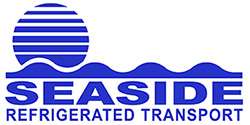The European Union is the world`s largest wine-producing and exporting region, with a rich history of winemaking dating back centuries. In recent years, the EU has forged several wine agreements with key trading partners, aimed at promoting trade, protecting geographical indications, and establishing common rules and standards for winemaking.
One of the most significant of these agreements is the EU-Canada Comprehensive Economic and Trade Agreement (CETA), which includes a chapter on wine and spirits. Under the agreement, Canadian winemakers can export their products to the EU duty-free, and the EU has granted protection to more than 140 Canadian wine geographical indications.
Another important agreement is the EU-Mexico Free Trade Agreement, which was updated in 2020. The agreement provides for the elimination of tariffs on EU wine exports to Mexico, as well as the recognition and protection of European geographical indications. This is particularly important for EU winemakers, as Mexico is one of the fastest-growing wine markets in the world.
The EU has also signed wine agreements with several other countries, including China, Japan, and South Korea. These agreements aim to promote bilateral trade, protect geographical indications, and establish common rules and standards. For example, the EU-China agreement includes provisions on labeling, certification, and protection of geographical indications, and the EU-Japan agreement includes a chapter on wine and spirits, which provides for the mutual recognition of wine standards and the protection of geographical indications.
In addition to these bilateral agreements, the EU has also signed multilateral agreements, such as the World Wine Trade Group Agreement. This agreement includes several wine-producing countries, such as the US, Canada, Chile, Argentina, Australia, and New Zealand, and aims to facilitate trade, promote wine education, and establish common rules and standards.
Overall, these wine agreements demonstrate the EU`s commitment to promoting trade, protecting geographical indications, and establishing common rules and standards for winemaking. They also provide opportunities for EU winemakers to expand their markets and promote their products on the global stage. As the wine industry continues to grow and evolve, these agreements will play an important role in shaping the future of wine trade.

